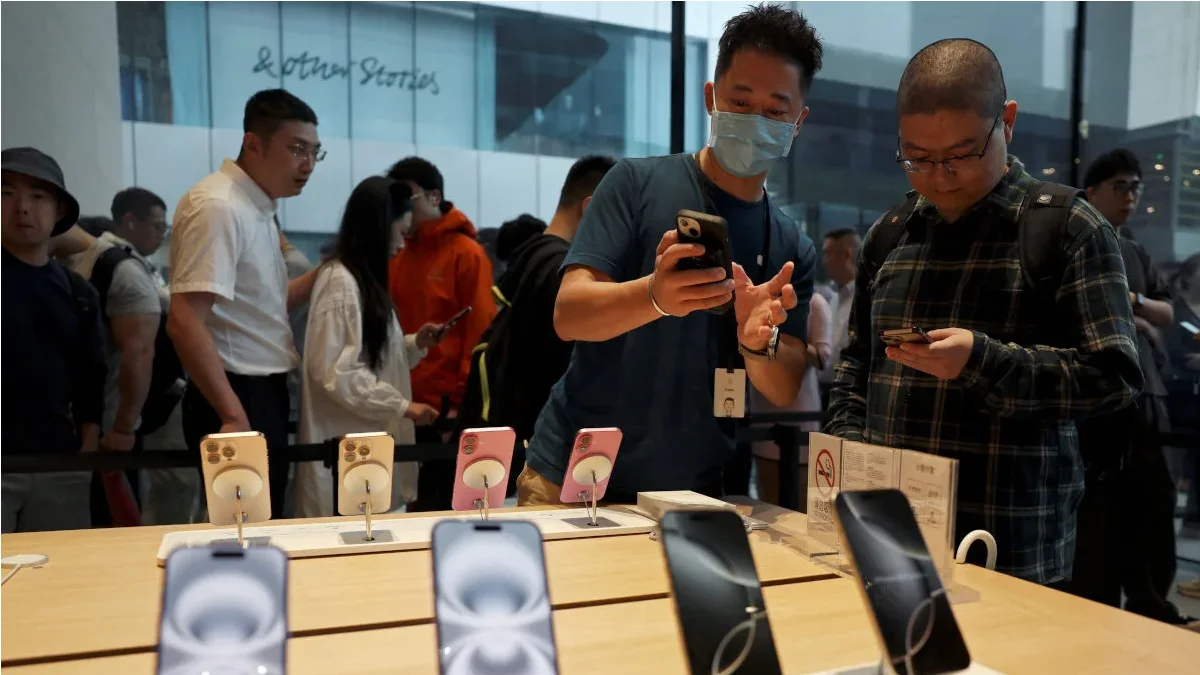Necessary Always Active
Necessary cookies are required to enable the basic features of this site, such as providing secure log-in or adjusting your consent preferences. These cookies do not store any personally identifiable data.
|
||||||
|
||||||
|
||||||
|

Apple has lost its crown as the largest smartphone seller in China in 2024, Reuters has reported. Local smartphone manufacturers, Huawei and Vivo overtook the iPhone maker after Apple smartphone sales declined by 17% in China.
Data from Canalys shows that the 17% iPhone sales decline was the largest that Apple has recorded in any year. Apple’s iPhone sales in China dropped steadily throughout 2024. However, the company experienced a sharp 25% drop in sales in quarter 4.
“This marks Apple’s worst annual performance in China. Apple’s premium market position faces multiple challenges- Huawei’s continuous flagship releases, the proliferation of domestic foldable phones in high-price segments, and Android brands like Xiaomi and Vivo building consumer loyalty through technological innovations,” Canalys Analyst Toby Zhu said.
Apple’s smartphone sales in China were affected heavily by fierce competition from local companies. For instance, budget smartphone manufacturer Vivo controlled 17% of China’s smartphone market share throughout the year. Premium smartphone maker Huawei controlled 16% of the market share while Apple came third with a 15% share.
This data shows the mounting pressure that Apple continues to face in one of its leading global markets. Last year, Huawei aggressively launched a range of high-end smartphones in the Chinese market. Its new products are increasingly becoming popular among Chinese buyers.
The decline of Apple’s market position in China shows how the absence of AI capabilities in its latest iPhone 16 may have affected the company’s competitiveness. The big tech unveiled iPhone 16 in September 2024 with a promise that the new model would offer a range of AI features through Apple Intelligence.
Although iPhone 16 is on sale in China, Apple AI is still not accessible to Chinese users due to the complicated AI regulations in the country. Rival smartphone makers have been marketing their own AI features in the country. Apple is reportedly talking to Tencent and TikTok’s mother company Bytedance about integrating AI models in iPhones sold in China.
For four years, Apple enjoyed consistent growth in China after the US government sanctioned Huawei products in 2021. These sanctions restricted Huawei from accessing the American market and technology. In 2023, Huawei made a comeback with premium smartphones. Since then, the Chinese smartphone maker has launched several chipsets in the domestic market, posting a 24% increase in sales in quarter four of 2024.
Huawei announced discounts on several high-end smartphones, watches, headphones, and tablets in December last year. The price slash was aimed at boosting sales and expanding the smartphone’s market share amidst fierce competition. Huawei has maintained its position as the best seller of foldable phones in the Chinese market.
Data from Counterpoint shows that the tech giant accounts for about 50% of the total domestic foldable smartphone shipments. Huawei shipped about 1.12 million foldable handsets in quarter 3 of 2024, representing a 97% year-on-year increase. Mate X5 contributed the biggest share of these shipments. Apple reacted to this move by launching a rare 4-day promotion with price cuts of up to $68.50 dollars on its top models to boost sales.
Apple is increasingly experiencing challenges with its efforts to sell its products in Asian countries. Besides its shrinking China smartphone market share, Apple is struggling to enter the Indonesian market. Earlier this year, Indonesia sustained its iPhone sale ban. The Asian country did this even after Apple committed a $1 billion investment to build a production facility in the country.
According to Indonesia, the iPhone maker has not complied with the country’s rules that require smartphones sold in the country to comprise a minimum of 35% locally-manufactured parts. Indonesia said the $1 billion that the big tech plans to spend on the construction of the Apple AirTag factory is not sufficient to meet this requirement.